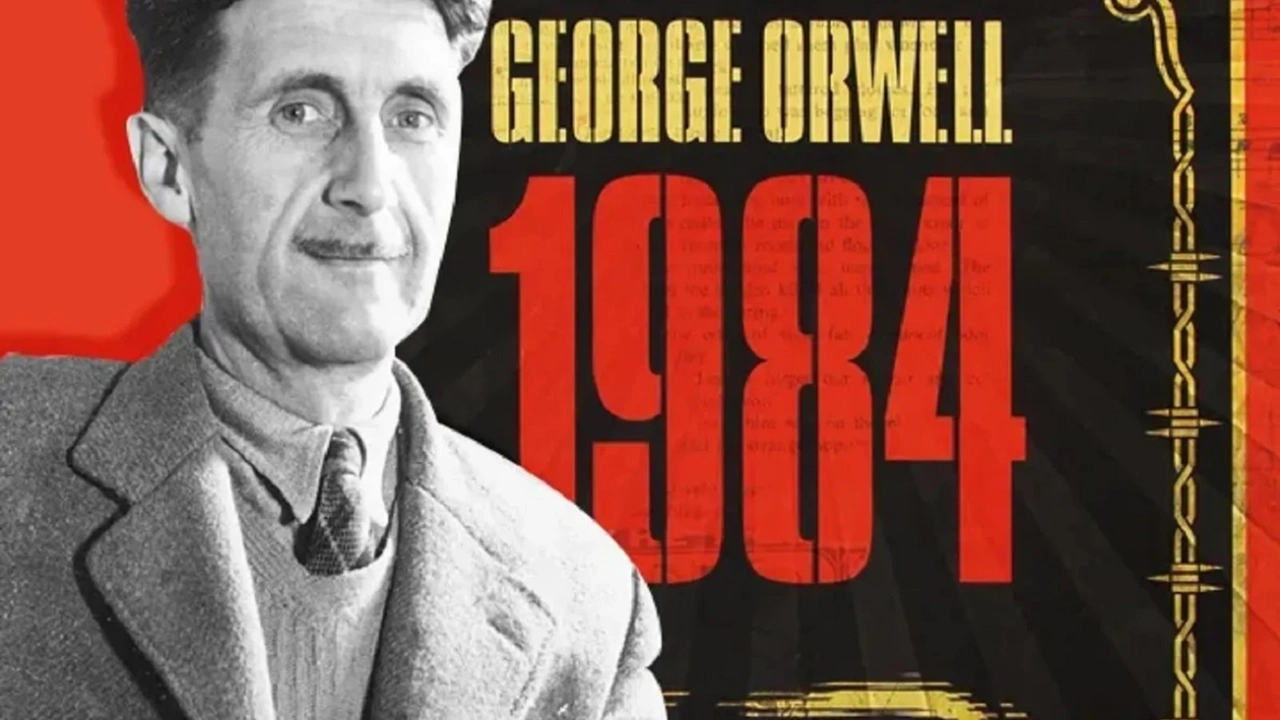Imagine a world where truth is a lie, freedom is slavery, and every thought is under surveillance—welcome to the haunting reality of 1984.
The World of 1984: An Introduction
“Freedom is slavery, war is peace, ignorance is strength.” Hearing these phrases in real life, one might dismiss them outright or question the mental state of whoever said them. However, in George Orwell’s renowned novel 1984, these statements are emblazoned on buildings, echoed in streets, and broadcasted over the radio. Moreover, the people living in this universe don’t find these words odd; they have wholly embraced them. The grim world Orwell presents unveils the nature of a totalitarian regime and is considered one of the finest examples of dystopian literature.
The Historical Context of the Novel
Orwell, also a journalist, meticulously studied the ideologies of communism, socialism, and fascism while crafting this novel. The historical backdrop lends the story its realism and hauntingly relatable nature. Even today, traces of the political systems depicted in the book can be observed.
The Power of the Regime and Propaganda
The novel vividly portrays the powerful propaganda techniques employed by the totalitarian regime to control the populace. In Orwell’s world, the government organizes an annual “Hate Week,” during which people vehemently express their hatred for enemies and renew their loyalty to the government. Even Winston, the protagonist, involuntarily participates in these collective hate rituals, succumbing to herd mentality.
Orwell drew inspiration from Joseph Stalin’s practice of labeling individuals as “enemies of the people” and sending them to labor camps. Creating enemies and directing public anger toward them was a common tactic in the Soviet Union.
A System Built on Hostility
Beyond propaganda driven by hate and enmity, the regime employs other manipulative techniques. In 1931, sociologist Jacques Ellul wrote an article on the psychology of propaganda, outlining four essential principles for effective propaganda:
- Prioritize emotional appeal.
- Frame propaganda through a “we vs. them” dichotomy.
- Target both individuals and groups.
- Ensure the propagandist remains as inconspicuous as possible.
The regime in 1984 masterfully applies these principles. For instance, emotions are deliberately targeted in propaganda, leaving no room for debate. A constant enemy is created, and the “us vs. them” distinction is sharply defined.
Methods of Controlling Thought
In the novel, the government limits the population’s thinking capacity through a language called “Newspeak.” In this language, certain words deemed unsuitable by the government are banned. Since language shapes thought, banning specific words makes it nearly impossible for people to conceive anti-government ideas. For example, without the word “dictator,” people cannot even articulate that Big Brother is a dictator.
Manipulation of the Past
The government doesn’t just manipulate language; it also alters the past. By revising all documents and photographs, it erases the public’s memory. Winston notices these distortions, but with no evidence to back him up, he begins to doubt even his own memories.
Panopticon and Telescreens
In Orwell’s imagined world, the government monitors citizens constantly. Drawing inspiration from philosopher Jeremy Bentham’s “Panopticon” concept, Orwell describes a surveillance system where telescreens track every move of the populace. Knowing they are perpetually observed, people fear making any missteps. During Stalin’s era in the Soviet Union, citizens were similarly encouraged to inform on each other. In the novel, even Winston is betrayed by his daughter.
Fear and Torture
The regime doesn’t stop at propaganda and surveillance; it also uses fear and torture to subdue the population. Winston’s resistance is broken under torture. In Room 101, he faces his greatest fear—rats—and ultimately surrenders entirely to the government. The oft-repeated phrase “2+2=5” serves as a metaphor for the regime’s ability to distort reality. O’Brien, a government official, attempts to make Winston believe in the “truth” dictated by the government.
The Philosophy and Conclusion of the Novel
1984 critiques not just socialism or fascism but totalitarian regimes in general, exposing how such systems seize our minds and strip away our freedom of thought. While the story may seem bleak when Winston is defeated, it also highlights how much effort the regime expends to crush a single dissenting individual. If more people were like Winston—questioning and resisting—the regime’s power might have been limited.
By depicting a dystopia ruled by a thought-controlling totalitarian regime, the novel forces readers to question how easily we could lose our freedoms.
